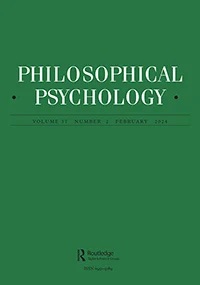What is the folk concept of discrimination? Discriminators and Comparators
New publication by Kasper Lippert-Rasmussen, Søren Serritzlew, Lasse Laustsen, Simone Sommer Degn & Andreas Albertsen in Philosophical Psychology
https://doi.org/10.1080/09515089.2024.2310616
E-published ahead of print.
ABSTRACT
According to many theorists, discrimination either requires a better treated comparator or can occur only if the discriminator belongs to a socially salient group different from that of the discriminatee. Both claims are philosophically important since they have important implications for which account of the moral wrongness of discrimination is correct, e.g., if no comparator is required, the wrongness of discrimination cannot result from treating different people as unequals since the unequal treatment of persons is not an essential feature of discrimination. Most theorists who have written on the topic see their account as articulating the folk concept of discrimination. However, none have subjected their putative articulations thereof to experimental testing. This is what the present study does. Its results are mixed, interesting, and call for further studies. Regarding comparativity, surprisingly, respondents are more disposed to classify a situation as discriminatory when there is no comparator than when there is one. Regarding reflexivity, respondents are more likely to classify our vignettes as involving discrimination when the discriminator is from another socially salient group than the discriminatee as to ethnicity but not when it comes to gender. Hence, non-reflexivity does not appear to be a conceptual requirement on discrimination. Remarkably, our study also shows that the mere reference to a majority, outgroup person in our vignettes makes respondents more likely to classify the vignette as involving discrimination against a minority person, even when the majority group person does not play the role of a comparator (behind payment wall).

